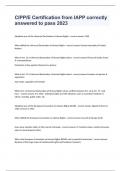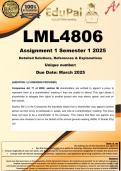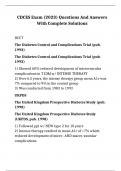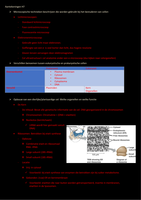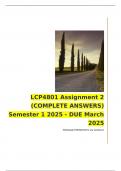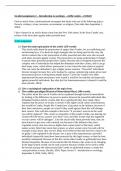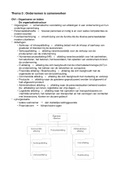Admissibility and relevance
Evidence presented by both the prosecution and defendant should always be relevant,
reliable and admissible in court. However, this is not always the case and evidence can be
ruled inadmissible. Relevance of evidence shows whether evidence for a case is valuable
and relevant enough to be proved or disapproved within court. For evidence to be ruled as
reliable it needs to be credible, authentic and accurate. For evidence to be credible it needs
to be believable by a reasonable person. For instance, does the court believe the witness
was telling the truth when she said she saw the defendant break into the property, or is she
shown to be untruthful. Even if the witness is telling the truth, their honesty alone may not be
enough due to prevailing conditions, such as night time, this means the defence could argue
that it might have been difficult or impossible for the witness to have seen the defendant
clearly. Facts in issue regards to relevance as it looks at the matters that are disputed in a
case. These are the facts that a court must decide on during a trial and this is relevant to
both sides-prosecution and defence. Entrapment is a technique police use to act as “agent
provocateurs”. This is when police try to obtain a conviction or confession out of a suspect.
Any evidence taken from this technique could be excluded under Section 78 of the Police
and Criminal Evidence Act 1984, and be ruled as inadmissible.There is also the European
Convention on Human Rights, where Article 6 provides the right to a fair trial. The defendant
can then argue that the entrapment was not fair. In the case of Colin Stagg, wrongly accused
and arrested for the murder of Rachel Nickell, police used a ‘honey trap’ by having an
undercover female officer pretend to be interested in a relationship in an attempt to make
Stagg confess. However, information was presented to court and all covert evidence gained
from the operation was ruled inadmissible as the case was dropped. During court, the judge
called this the “deceptive conduct of the grossest kind”.
Legislation and case law
Legislation is a term used to describe the main laws that are passed by legislative bodies,
such as politicians, and is usually amended before passage. This consists of evaluating,
voting on proposed laws and amending the laws. Once it has been passed, they can be
used in court against a defendant. A case law is a set of rulings from court judgements.
Case law sers examples for how laws are being applied to specific criminal cases. They
relate to passing sentences as the judge uses them as a guideline to decide on the
appropriate sentencing that an offender should get.
Pre trial silence
Pre-trial silence from the suspect may infer guilt by the jury, despite the basic principle of the
law that the accused is presumed innocent until proven guilty. Once proven guilty the
offender is charged beyond all reasonable doubt surrounding the case. The Criminal Justice
and Public Order Act 1994, allows the jury to make conclusions about the defendant’s guilt if
they remain silent during some circumstances. This includes failing to answer police
questions and if they fail to testify in court. This is unless the defendant can provide a
relevant and valid reason for not testifying in court, and once heard the jury then can decide
if they deem it acceptable. In the case of Gareth Hughes, he had the right to remain silent
when being questioned by police. This could have possibly affected the jury’s decision when
convicting Hughes as his refusal to comment could have led them to believe he had time to
infiltrate a story and lie about the murder.


